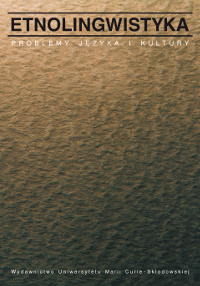Балтийские этнокультурные стереотипы: концепция пространства
BALTIC ETHNOCULTURAL STEREOTYPES: THE CONCEPTION OF SPACE
Author(s): Marija Zav'jalova, Svetlana I. RyžakovaSubject(s): Language and Literature Studies, Applied Linguistics
Published by: Wydawnictwo Naukowe Uniwersytetu Marii Curie-Sklodowskiej
Keywords: LINGUISTIC EXPERIMENT
Summary/Abstract: The article is thought of as a contribution to the study of integrative processes which on the mental and cultural level take place in contemporary Lithuanian and Latvian societies in a new, complex ethnic situation. The authoresses report on the results of experiments carried out simultaneously in the schools of Vilnius and Riga in 1999. The experiments focused on the conceptualization of space by pupils aged 16 to 19. The questions concerned the sacral and 'close' space and secondarily the understanding of selected spatial concepts. For Lithuanian and Latvian teenagers the 'sacral' space is, apart from that of the church and cemetery, the capital and its parts. 'Close' space for Lithuanians is the home, nature and the capital town, for the Latvians it is the town (not necessarily the capital) and its parts, and only secondarily the home and nature. The preferred places of dwelling - beside the home country - are for both nationalities Europe and the USA, rather than Russia. In the second experiment, associative in nature, the stimuli words included 'home', 'land', 'world' and 'space'. Its purpose was to capture the categories which subconsciously govern associations. It appeared that the superordinate category is the opposition 'us' - 'them'. There were fundamental similarities between the answers provided by Lithuanian and Latvian respondents in terms of the associations between what belongs to 'us' (the home, the land) with what is close and, on the other hand, between what is foreign and alien (the world) with what is distant. However, the Lithuanian respondents characterized land and space differently than Latvian ones. For the former, land is warm but sad and space is closed or open; for the latter land is strongly associated with homeland and the country, space is treated as closed.
Journal: Etnolingwistyka. Problemy Języka I Kultury
- Issue Year: 17/2005
- Issue No: 17
- Page Range: 259-277
- Page Count: 19
- Language: Russian

